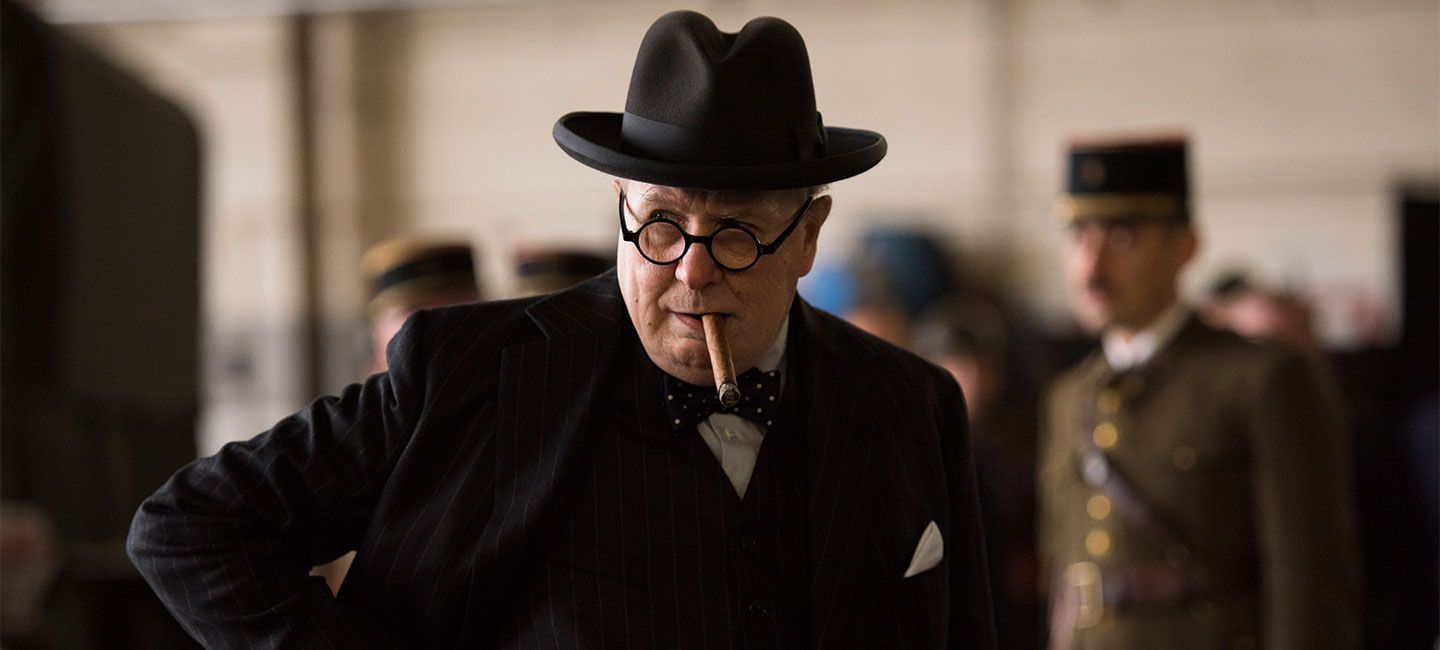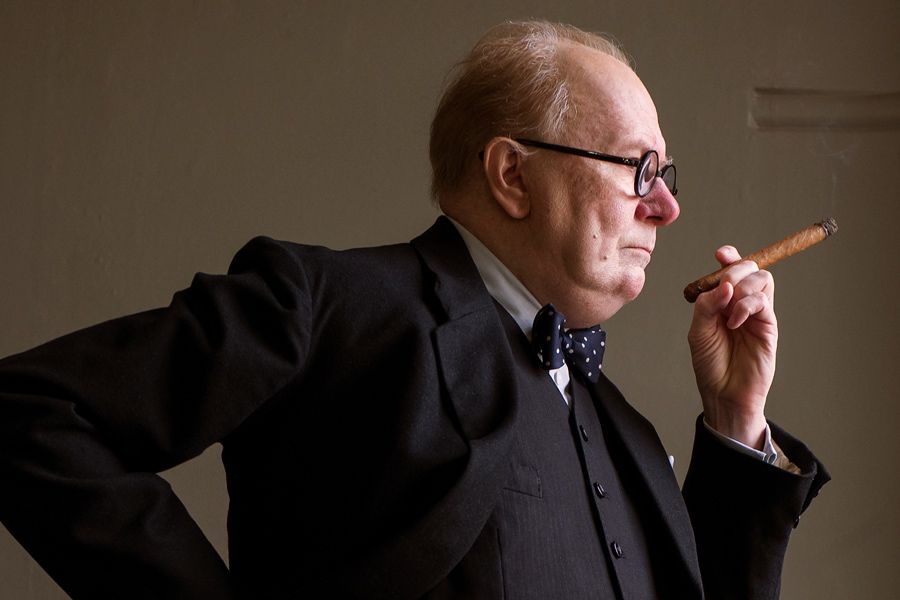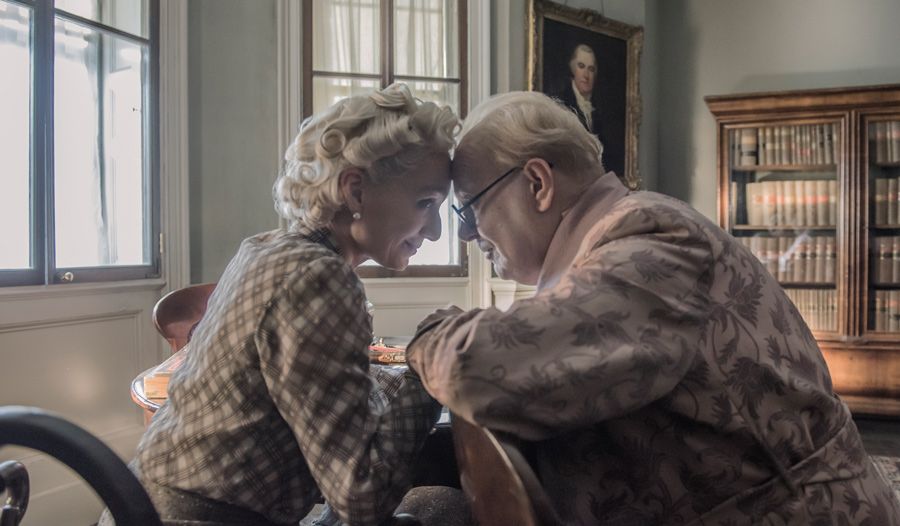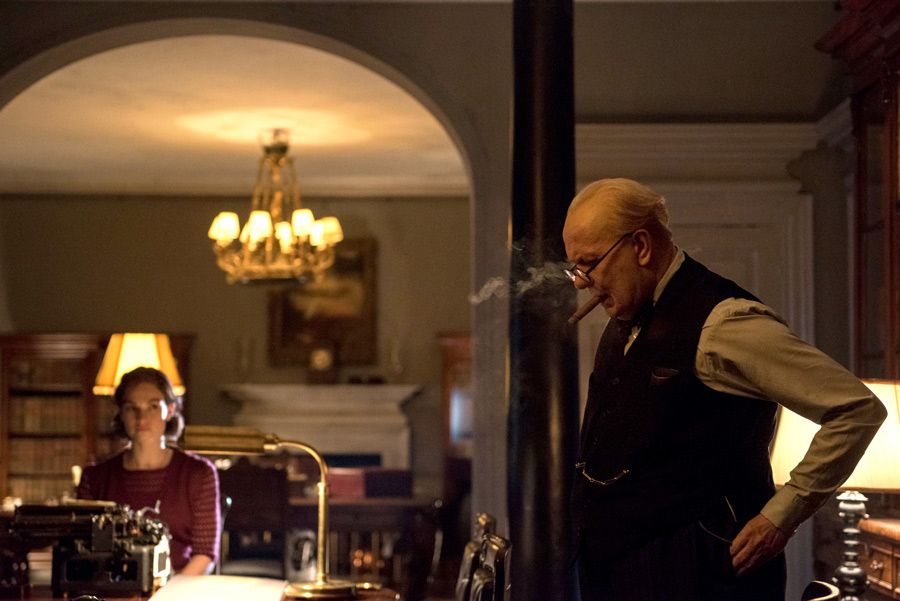
Finest Facts: 8 Things that Make Winston Churchill Legendary
What to know about the leader Gary Oldman plays in Darkest Hour
Joe Wright’s Darkest Hour brings to the screen the crucial few weeks in the life of Winston Churchill (played by Gary Oldman). Appointed prime minister in a divisive political fight, Churchill rises above the rancor to confront the terrifying possibility of a Nazi invasion. “I had always been fascinated by Churchill as he was truly our greatest statesman,” Oldman states. “Had it not been for him, what would our world be like? There’s no one to touch him. There’s still no one like him.” To measure the larger than life nature of Britain’s most famous leader, we fill you in on some fascinating details about this great man.
Get tickets for Darkest Hour now.
Official trailer for Darkest Hour
1) He won a Nobel Prize.
Churchill was awarded this coveted award not for defeating the Nazis, but for his writing. In 1953, the selection committee handed Churchill the Nobel Prize for Literature for his prose, including his six-volume history The Second World War. In explaining their decision, the Nobel Prize committee acknowledge Churchill’s “mastery of historical and biographical description as well as for brilliant oratory in defending exalted human values."
2) He had the sharpest tongue around.
With the same verbal virtuosity by which Churchill could inspire a nation to fight, he could cut someone to the quick. The Independent reported that one of Churchill’s classic zingers topped a 2013 poll on the world’s funniest insults. In 1946, accosted by MP Bessie Braddock for being noticeably inebriated, Churchill famously responded, “My dear, you are ugly, but tomorrow I shall be sober, and you will still be ugly.”
3) Churchill championed the bow tie.
In 2012, the clothing site Bows-N-Ties picked Winston Churchill the “Best Dressed World Leader of All Time.” Beyond his immaculately tailored suits and love of hats, Churchill is remembered for sporting bow ties. His most memorable one––made of blue cloth with white polka dots––was later mass-produced and titled the “Blenheim,” the name of Churchill’s birthplace. In Churchill Style: The Art of Being Winston Churchill, Barry Singer suggests that this tie especially connected him to his father, who “wore spotted bow ties.”

Churchill (Gary Oldman) wearing his iconic bow tie
4) Churchill was highly accident-prone.
For someone so agile with his words, Churchill proved a disaster on his own two feet. At 18, he fell off a bridge at his aunt’s estate and landed in a three-day coma. The next year, he and his brother nearly drowned after losing control of their rowboat in Switzerland. Over the years, Churchill fell from horses, crashed planes, and even dislocated his shoulder deboarding a ship. In 1931, he looked the wrong way while getting out of a taxi in New York City and was hit by an oncoming car. After recovering from this near-death experience, he wrote in The Daily Mail, “I certainly suffered every pang, mental and physical, that a street accident or, I suppose, a shell wound can produce. None is unendurable. There is neither the time nor the strength for self-pity.”
5) Clementine was the fourth woman he wooed.
In his youth, Churchill fell in love often, and mostly unsuccessfully. He first proposed to society beauty Pamela Plowden. A few years later he bent a knee for the American actress Ethel Barrymore. And soon after he popped the question to Muriel Wilson, dubbed “Great Britain’s most beautiful girl.” But all three women turned the young lothario down. His luck changed in 1908 when Churchill met the women who would become his wife and closest confidant, Clementine Hozier (played by Kristin Scott Thomas). Churchill’s chief of staff later commented that without Clementine, “the history of Winston Churchill and of the world would have been a very different story.”

Churchill (Gary Oldman) with his beloved wife Clementine (Kristin Scott Thomas) in Darkest Hour
6) Churchill was an accomplished painter.
In his book Painting as a Pastime, Churchill wrote, “painting a picture is like fighting a battle.” But his subjects, revealed in the over 500 oils he painted, were as far from war as one could imagine. Rather than battlefields, Churchill mostly captured the quiet beauty of landscapes. He started painting at age 40 as a way to deal with his depression, and continued until his death.
7) He loved a good cigar.
As a political reporter covering the Cuban War of Independence, Churchill developed a love for cigars. From then he was never without either a Cuban-made Romeo y Julieta or La Aroma de Cuba in his hand. At his country home at Chartwell Manor, he kept a constant stash of over 3,500 cigars. He was so reluctant to relinquish his stogie that Yousuf Karsh could only snap his famous 1941 portrait of the great leader by snatching his cigar at the last moment, a fact that some suggest explains Churchill’s Bulldog scowl.

Churchill smoking one of his omnipresent cigars.
8) Churchill had strong ties to America.
Churchill’s connection to the United States ran deeper than just being America’s greatest ally. His mother Lady Randolph Churchill was American, born Jennie Jerome in Brooklyn, NY. And through the years, he spoke fondly of his mother’s home country. In 1963, this love was officially reciprocated when President John F. Kennedy made him the first legally acknowledged honorary citizen of the United States, praising the man whose “bravery, charity and valor, both in war and in peace, have been a flame of inspiration in freedom’s darkest hour.”
Sign up for the Focus Insider newsletter to be first in line for free advance screenings, world premiere travel packages, weekend set visits, and so much more!